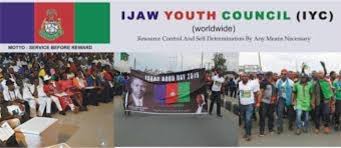The Ijaw Youths Council (IYC) Worldwide has strongly opposed President Bola Ahmed Tinubu’s recent decision to scrap the Niger Delta Ministry.
This decision has been described as “unacceptable” by the IYC, a prominent youth organization representing the interests of the Ijaw people.
In a statement released on Wednesday in Port Harcourt, Rivers State, the IYC called on President Tinubu to reconsider his decision.
The council emphasized that the development of the Niger Delta region requires special attention due to its unique challenges.
Maobuye Nangi Obu, the Secretary-General of the IYC, highlighted the importance of maintaining existing intervention structures.
He stated that the Niger Delta should be treated as a special area deserving more programs, projects, ministries, and interventionist agencies.
Obu said, “There is no justification whatsoever to scrap any existing structure designed for Niger Delta development.”
His statement reflects the sentiments of many who believe that the region’s needs are often overlooked.
He added, “If any interventionist structure is found wanting, we expect the federal government to reform and refocus it to tackle specific needs of our region.”
The Niger Delta region has long been plagued by challenges stemming from oil exploitation and environmental degradation.
Obu pointed out that this area has faced continuous struggles due to its difficult terrain and the negative impacts of oil exploration.
He said, “Our region has always been in a disadvantaged position being the area with the most difficult terrain that has been consistently vandalized and messed up through oil exploitation and exploration to provide resources and revenue used to develop other regions.”
The IYC insists that the federal government must recognize these challenges and treat the Niger Delta as a special territory.
Obu further expressed disappointment with President Tinubu’s decision, saying, “We expect President Tinubu, who understands our challenges, to know better than endorsing the scrapping of the Niger Delta Ministry.”
He urged the president to create more interventionist programs, projects, and ministries to address the myriad issues affecting the Niger Delta’s development.
The council has noted a troubling trend in recent government actions.
Obu criticized efforts to either strip the Niger Delta of its special status or equate it with other regions that do not have the same level of need.
He stated, “It is disturbing why all of a sudden the National Assembly and the Presidency had created development agencies in the mode of the Niger Delta Development Commission (NDDC) for other regions.”
This remark highlights the IYC’s concern about perceived inequality in development initiatives across the country.
In response to the growing frustration, the IYC acknowledged the positive steps taken by some legislators.
Obu commended the Senate and certain senators from the Niger Delta, particularly former Bayelsa State Governor Senator Seriake Dickson, for advocating the creation of the South-South Development Commission.
He noted, “We understand that the South-South Development Commission Bill has been passed by the Senate, and we are expecting President Tinubu to swiftly sign it into law.”
This new commission could play a vital role in addressing the developmental gap faced by the Niger Delta.
The IYC views this as a necessary step to prevent further marginalization of the region.
Obu concluded by reiterating the need for the federal government to prioritize the Niger Delta’s development.
He said, “The IYC is not happy that the President has done otherwise, and we are urging him to bring back the ministry and saddle it with a special assignment.”
The Niger Delta has a long history of political and social struggles, largely tied to its oil wealth.
Despite being rich in resources, the region has often been neglected in terms of development and infrastructure.
The scrapping of the Niger Delta Ministry has raised concerns about the future of interventions aimed at addressing these longstanding issues.
Many stakeholders in the region are worried about the implications of this decision.
Without dedicated institutions to focus on its unique challenges, the Niger Delta risks further economic and social decline.
The IYC’s position reflects the urgent need for a responsive government that understands the region’s complexities.
The call for the reinstatement of the ministry is not just about bureaucracy; it is about ensuring the people of the Niger Delta have a voice in their development.
Many in the region are looking to President Tinubu to act swiftly in response to the IYC’s demands.
The council’s rejection of the ministry’s scrapping is a rallying cry for other groups and individuals who share similar concerns.
Activists and community leaders in the Niger Delta are joining the IYC’s call for action.
They argue that sustainable development in the Niger Delta can only be achieved through dedicated focus and resources.
The government’s ability to respond to these calls will be crucial in shaping the future of the Niger Delta.

